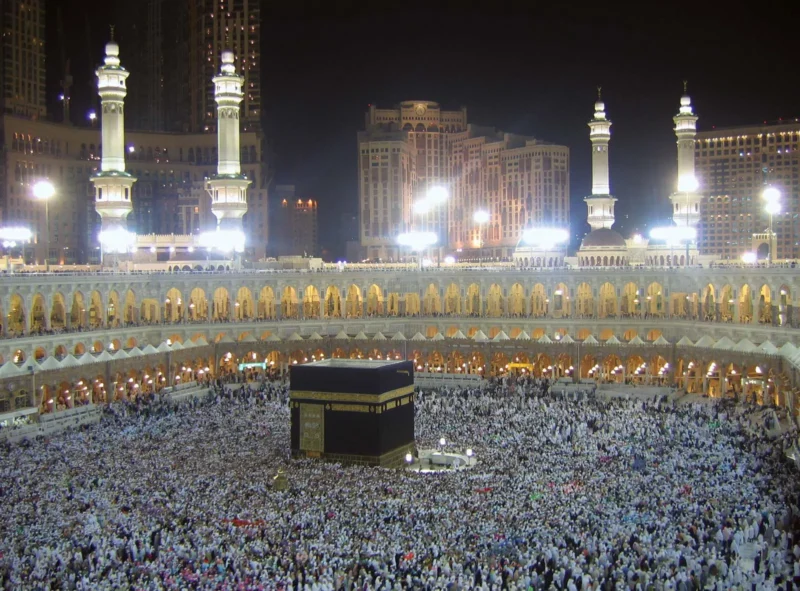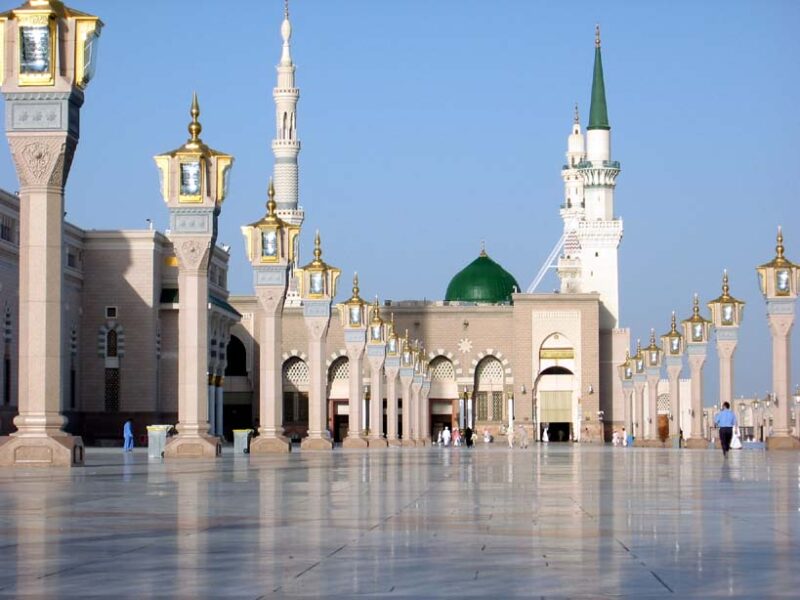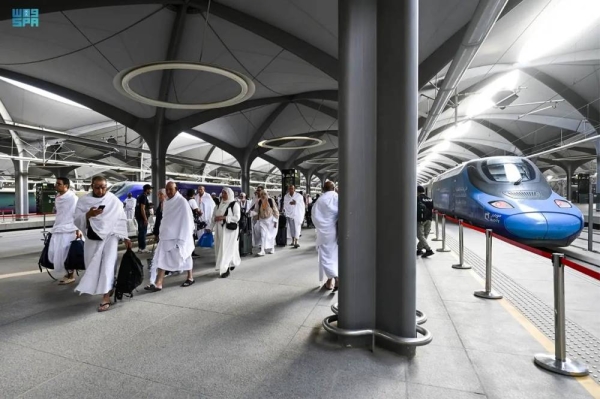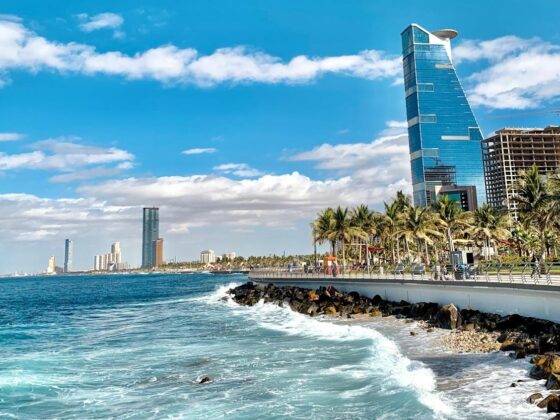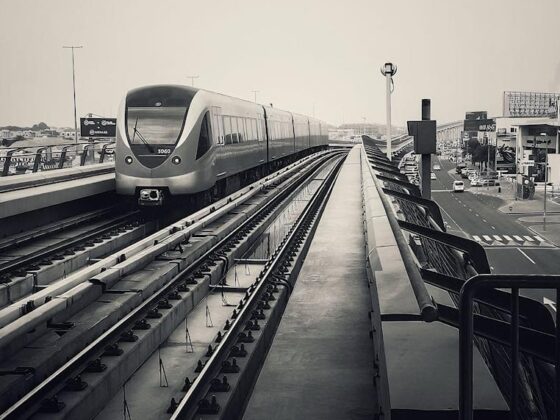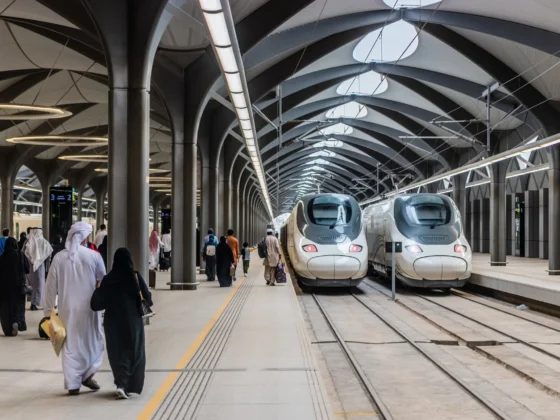Introduction to Hajj Preparation
Importance of Hajj in Islam
Hajj holds great significance in Islam, representing one of the Five Pillars that form the foundation of a Muslim’s faith. Each year, millions of Muslims travel to the holy city of Mecca to fulfill this sacred obligation. As I prepare for my own journey, I recognize that Hajj is not only an act of worship but also a profound spiritual experience that fosters unity among Muslims worldwide.
During Hajj, pilgrims engage in a series of rituals that commemorate the actions of the Prophet Ibrahim (Abraham) and his family. From standing at Arafat to performing Tawaf around the Kaaba, these rituals connect me deeply with my faith and heritage. Understanding the importance of Hajj helps me appreciate its role as a means of purification and self-reflection.
Personal Significance of Performing Hajj
The decision to embark on Hajj is a deeply personal one. For me, this pilgrimage is an opportunity to cleanse my soul, seek forgiveness for past transgressions, and reaffirm my commitment to my faith. The journey is not merely physical; it embodies a transformative spiritual path that deeply resonates within me.
As I prepare, I consider what Hajj means to my life. It is a chance to connect with fellow travelers who share my beliefs and aspirations, fostering a sense of community and belonging. The lessons learned and experiences gained during this journey will undoubtedly shape my faith and provide guidance in my everyday life.
In preparation for this meaningful endeavor, I will ensure that I gather all necessary information to make my pilgrimage successful. To begin, I will explore essential resources such as the Hajj umrah comprehensive guide and create a pilgrimage packing checklist to ensure that I have everything I need for this deeply spiritual quest.
Understanding the Hajj Journey
The Hajj journey is a profound experience, filled with rituals and significant moments that deepen spiritual connections for every pilgrim. Understanding these rituals and the important dates involved is essential for a rewarding experience.
Overview of Hajj Rituals
Hajj is comprised of several key rituals that I must observe to fulfill the pilgrimage properly. These rituals take place over a defined period and include the following:
| Ritual | Description |
|---|---|
| Ihram | The state of spiritual purity and the special garments worn during Hajj. |
| Tawaf | Circling the Kaaba seven times in a counterclockwise direction. |
| Sa’i | Walking seven times between the hills of Safa and Marwah. |
| Standing at Arafat | Spending the afternoon of the 9th day of Dhul-Hijjah at the plain of Arafat in prayer. |
| Muzdalifah | Collecting pebbles and spending the night under the open sky on the night of the 10th of Dhul-Hijjah. |
| Ramy al-Jamarat | Throwing stones at three pillars representing Satan. |
| Eid al-Adha | Sacrificing an animal as part of the festival that follows Hajj. |
| Tawaf al-Ifadah | A second circling of the Kaaba performed after the Day of Arafat. |
Engaging in these rituals forms a central part of my Hajj preparation guide.
Key Dates and Schedule for Hajj
Knowing the key dates during the Hajj period is crucial. The Hajj occurs annually in the Islamic month of Dhul-Hijjah. Below is a simplified schedule:
| Date | Ritual | Description |
|---|---|---|
| 8th Dhul-Hijjah | Yawm at-Tarwiyah | Entering into Ihram and traveling to Mina. |
| 9th Dhul-Hijjah | Yawm Arafah | Standing at Arafat, praying, and seeking forgiveness. |
| 10th Dhul-Hijjah | Eid al-Adha | Ritual sacrifice, shaving/cutting hair, and Tawaf al-Ifadah. |
| 11th – 13th Dhul-Hijjah | Days of Tashreeq | Continuing to perform Ramy al-Jamarat and Tawaf. |
Planning my journey around these important dates ensures I maximize my experience. For more details on the Hajj travel logistics, I can refer to the Hajj & Umrah transportation options.
Understanding the rituals and schedules of Hajj is a fundamental part of my preparation. This knowledge not only facilitates a smoother pilgrimage but also enriches my spiritual journey.
Essential Preparations for Hajj
Preparing for Hajj involves several crucial steps to ensure a smooth and fulfilling journey. As I get ready for this sacred pilgrimage, I focus on obtaining the necessary travel documents, creating a comprehensive packing list, and taking important health and safety precautions.
Obtaining Necessary Travel Documents
Before embarking on the Hajj journey, I must ensure that all travel documents are in order. This typically includes:
| Document Type | Description |
|---|---|
| Valid Passport | Must be valid for at least 6 months from entry into Saudi Arabia. |
| Hajj Visa | A special visa issued for pilgrims. |
| Vaccination Records | Required vaccinations (e.g., meningitis, COVID-19). |
| Travel Insurance | Coverage for any potential health issues or travel disruptions. |
It is essential that I double-check the requirements specific to my nationality and consult the nearest Saudi consulate if necessary. For more tips on travel arrangements, refer to our Hajj and Umrah comprehensive guide.
Packing List for Hajj
Creating a packing list is vital for ensuring I have everything I need during the pilgrimage. Here’s a helpful packing checklist:
| Item | Quantity |
|---|---|
| Ihram garments | 2 sets |
| Comfortable sandals | 1 pair |
| Light clothing | Varies |
| Toiletries | Personal essentials |
| Travel prayer mat | 1 |
| Water bottle | 1 |
| Snacks | As needed |
| First aid kit | 1 |
| Electronic chargers | 1 set |
| Prayer books | 1 |
I should refer to the pilgrimage packing checklist for more detailed items specific to the pilgrimage.
Health and Safety Precautions
Health and safety must remain a priority during Hajj. Before traveling, I take several precautions:
| Precaution | Description |
|---|---|
| Vaccinations | Ensure I am vaccinated based on required immunizations. |
| Medications | Carry necessary prescription and over-the-counter medications. |
| Hydration | Drink plenty of water to stay hydrated, especially in the heat. |
| Health Insurance | Have health insurance that covers me abroad. |
| Learn emergency contacts | Familiarize myself with local emergency services. |
It’s also wise to study Islamic etiquette during pilgrimage to enhance the overall experience and respect shared spaces. Preparing holistically not only fosters a peaceful journey but also enriches the spiritual connection during this sacred time.
Spiritual and Mental Preparedness
Preparing for Hajj is not solely about physical packing and logistics; it also requires spiritual and mental readiness. This section emphasizes the importance of cultivating the right mindset before embarking on this sacred journey.
Mental and Emotional Readiness
Prior to my Hajj journey, I found it essential to ensure that I was mentally and emotionally prepared for the experience. Spiritual fulfillment during Hajj comes from understanding its significance and reflecting on my personal intentions. Here are some key steps I took:
| Preparation Steps | Description |
|---|---|
| Set Clear Intentions | I spent time alone in contemplation, making sure my intentions for performing Hajj were sincere and focused on spiritual growth. |
| Journaling | I maintained a journal to reflect on my thoughts, feelings, and aspirations as I prepared for the pilgrimage. This practice provided clarity and focus. |
| Engage in Community | Surrounding myself with fellow pilgrims or those who had completed Hajj helped me gain insights and encouragement. |
Mental readiness involves managing expectations and understanding the challenges I might face during the pilgrimage, including busy crowds and emotional moments. It is crucial to acknowledge that patience and resilience are paramount during this sacred journey.
Enhancing Spiritual Connection
To enhance my spiritual connection in preparation for Hajj, I adopted various practices that nurtured my faith. This connection is central to the Hajj experience and can be cultivated in different ways:
| Spiritual Practices | How They Enhance Connection |
|---|---|
| Regular Prayers (Salah) | Consistency in my daily prayers helped deepen my connection to Allah and prepare my heart for the pilgrimage. |
| Reading the Quran | I focused on specific chapters and verses that inspire reflection on pilgrimage and my relationship with faith. |
| Seeking Forgiveness | Engaging in sincere supplications and seeking forgiveness for past actions opened my heart to spiritual renewal. |
Moreover, familiarizing myself with Hajj rituals and their meanings reinforced my understanding of the journey. I reviewed mecca medina pilgrimage guide for insights into religious practices and what to anticipate during the Hajj.
During this period, I also reflected on personal sacrifices I was willing to make, amplifying the spiritual significance of Hajj. Embracing this spiritual voyage required not just physical presence but also emotional and mental engagement, preparing me for a transformative experience.
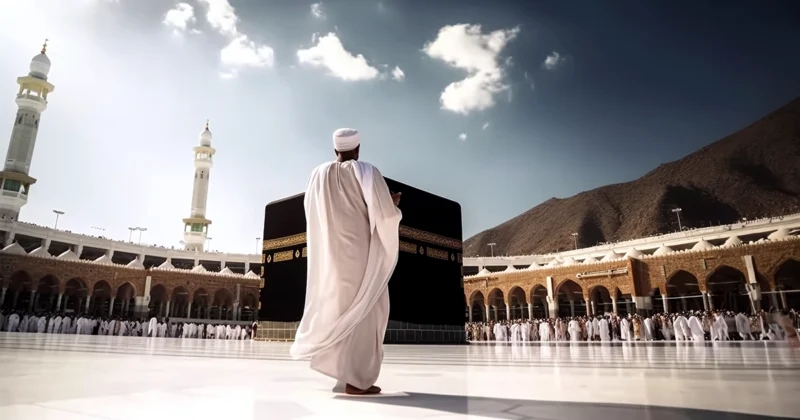
Practical Tips for a Successful Hajj
Preparing for Hajj requires more than just spiritual readiness; it also necessitates practical considerations to enhance the pilgrimage experience. Here, I share some important tips on etiquette, navigating challenges, and maximizing the Hajj experience.
Etiquette and Behavior During Hajj
During the Hajj pilgrimage, adhering to proper etiquette is fundamental. I always remind myself to embody patience, humility, and respect for fellow pilgrims. Key behaviors to remember include:
- Respect for Sacredness: Treat all holy sites and rituals with utmost reverence.
- Polite Interaction: Use kind language and maintain a calm demeanor, even in crowded situations.
- Dress Appropriately: Wear simple and modest clothing, as required for Ihram.
- Avoid Distractions: Focus on worship and spiritual activities, minimizing use of mobile devices.
For further information on expected behaviors, I recommend reading about Islamic etiquette during pilgrimage.
Dealing with large crowds during Hajj can be overwhelming. I find that being familiar with crowd management techniques can significantly ease the experience. Here are some strategies that have worked for me:
- Plan Ahead: Know the schedule for each ritual to avoid last-minute rushes.
- Use Available Transportation: Utilize organized transport options like the Hajj Umrah transportation options to ease travel between key locations.
- Stay Hydrated: Drink plenty of water and take breaks as needed to combat exhaustion.
- Keep Essentials Handy: Carry a small pack with necessities such as water, snacks, and a map to avoid getting lost in the crowds.
Making the Most of Your Hajj Experience
Maximizing the spiritual impact of Hajj is key for every pilgrim. I have found that immersing myself in the experience yields deeper connections to faith. Here are some tips to enhance the pilgrimage:
| Tip | Description |
|---|---|
| Focus on Intention | Set clear intentions for each part of the pilgrimage to maintain spiritual focus. |
| Engage in Prayer | Utilize moments of waiting to pray, meditate, or reflect on personal goals. |
| Participate in Group Activities | Join fellow pilgrims in group prayers and discussions to enhance community feeling. |
I also find that visiting educational resources, such as the Mecca Medina pilgrimage guide, helps deepen the understanding of the rituals.
As I prepare for Hajj, I prioritize these practical strategies to ensure a smooth and meaningful pilgrimage experience.
Post-Hajj Reflections
Reflecting on Your Journey
After completing the Hajj pilgrimage, I find it essential to take time to reflect on the journey I have just experienced. The moments spent in the holy cities of Mecca and Medina can leave a lasting impression, shaping my understanding of faith and devotion. As I consider my personal growth throughout this journey, I focus on the spiritual lessons learned and the powerful connections made with fellow pilgrims.
During this reflection, I often write down my thoughts and feelings. This practice helps me to process the experience and understand its significance in my life. I also consider how my participation in Hajj aligns with the teachings of Islam, reminding myself of the importance of community, compassion, and humility.
Additionally, I like to review specific rituals and moments that stood out to me during Hajj. This might include the beauty of the Kaaba, the sense of unity during the Tawaf, or the intense prayers at Arafat. Documenting these memories can further enhance my appreciation for this sacred pilgrimage.
| Reflection Areas | Insights |
|---|---|
| Rituals Experienced | Kaaba, Tawaf, Arafat |
| Personal Growth Areas | Community connection, compassion, humility |
| Key Emotional Moments | Feelings of peace, gratitude, and spiritual awakening |
Implementing Hajj Lessons in Daily Life
The teachings and lessons learned during Hajj should extend far beyond the pilgrimage itself. I aim to implement these lessons into my daily life, ensuring that the experience has a lasting impact.
One key lesson is the importance of community and support. I strive to cultivate stronger relationships within my own community by participating in local charitable events and volunteering. This aligns with the spirit of Hajj, which emphasizes brotherhood and social responsibility.
Another lesson is the necessity of humility and gratitude. I work on expressing gratitude for my blessings and remaining humble in my interactions with others. This practice allows me to engage in meaningful conversations and to feel more connected to those around me.
To help me stay on track, I have created a personal checklist of daily actions inspired by my Hajj experience. These might include daily prayers, acts of kindness, and moments of reflection. For further guidance on planning a successful pilgrimage, refer to our Hajj Umrah comprehensive guide.
| Daily Actions Inspired by Hajj | Description |
|---|---|
| Daily Prayers | Incorporating prayers into my routine |
| Acts of Kindness | Engaging in acts of charity and support |
| Personal Reflection | Setting aside time for daily reflection |
By maintaining this focus on introspection and action, I can ensure that the lessons from my Hajj pilgrimage continue to enrich my life and deepen my commitment to my faith.
